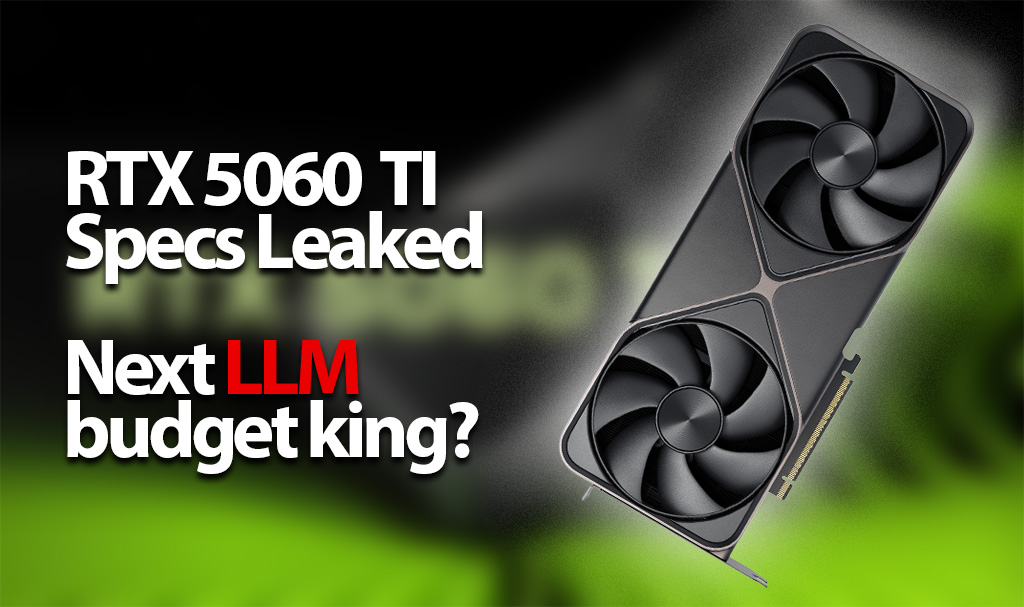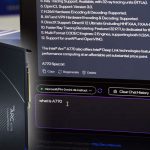55% More Bandwidth! RTX 5060 Ti Set to Demolish 4060 Ti for Local LLM Performance

In just two days, NVIDIA is set to launch their RTX 5060 Ti, and recently leaked specs suggest this card could become the go-to option for budget-conscious LLM enthusiasts looking to run impressive models locally. With the rising prices and dwindling availability of used RTX 3090s, this new mid-tier offering presents an intriguing alternative for those prioritizing VRAM capacity in their local inference setups.
Leaked Specifications Show Promise
According to verified GPU-Z screenshots, the RTX 5060 Ti 16GB variant will feature:
- 4608 CUDA cores
- 2407 MHz base clock and 2572 MHz boost clock
- 16GB of GDDR7 memory on a 128-bit bus
- 28 Gbps memory speed delivering 448 GB/s bandwidth
- 180W TDP with no adjustment options
- PCIe 5.0 x8 interface
Memory Bandwidth: A Critical Upgrade for LLM Workloads
The most significant improvement for LLM enthusiasts comes in the form of memory bandwidth. At 448 GB/s, the RTX 5060 Ti represents a substantial 55.6% increase over the RTX 4060 Ti 16GB (288 GB/s) and a 64.7% jump from the RTX 3060 12GB (360 GB/s). This upgrade directly translates to faster token generation when running quantized models, which is precisely what matters for responsive local inference.
16GB VRAM: The Sweet Spot for 14B Parameter Models
With 16GB of VRAM, this card hits a sweet spot for popular open-source models in the 14B parameter range. When running 4-bit quantized versions of models like Qwen2.5 14B or Qwen2.5 Coder 14B, users can expect approximately 7GB available for context, translating to roughly 26K context length—ample headroom for complex programming tasks and extended conversations.
Performance Positioning
While we await official benchmarks, the specifications suggest the RTX 5060 Ti should handily outperform both the RTX 3060 12GB and RTX 4060 Ti 16GB in tokens-per-second metrics when running local LLMs. The combination of increased CUDA cores (4608 vs 4352 on the 4060 Ti) and significantly higher memory bandwidth makes this card particularly well-suited for inference workloads.
Value Proposition for LLM Enthusiasts
For those building dedicated local inference rigs, the RTX 5060 Ti represents a potentially compelling option:
- Sufficient VRAM for running 14B parameter models with generous context windows
- Memory bandwidth that should deliver responsive inference
- Faster prompt processing times
- PCIe 5.0 support for future-proofing
While pricing remains unannounced, if NVIDIA positions this card competitively, it could become the new value leader for budget-conscious LLM enthusiasts who don’t require the absolute horsepower of higher-tier offerings.
For those planning local inference setups who have been eyeing used 30-series cards, it might be worth waiting just a bit longer to see how this new offering stacks up in real-world LLM workloads.




